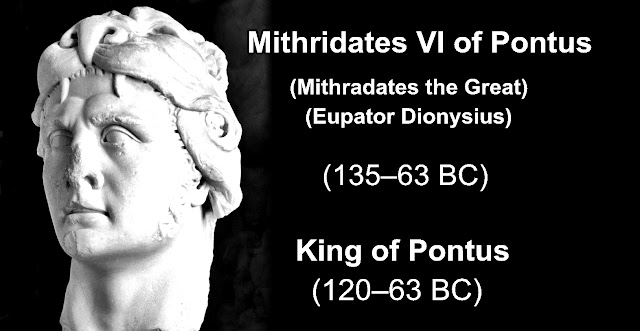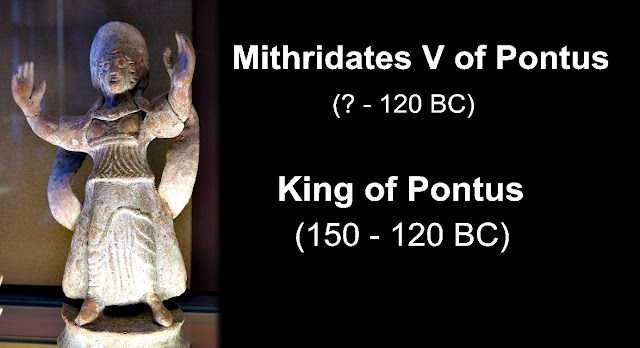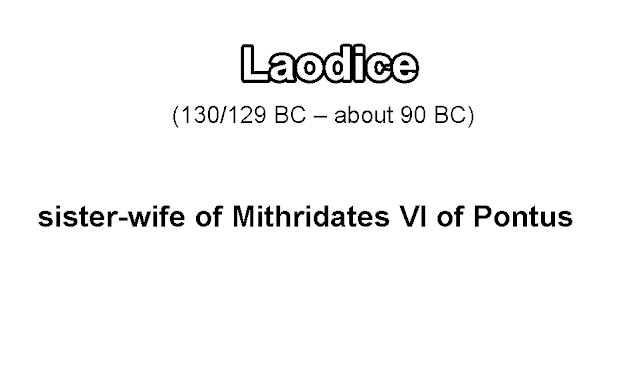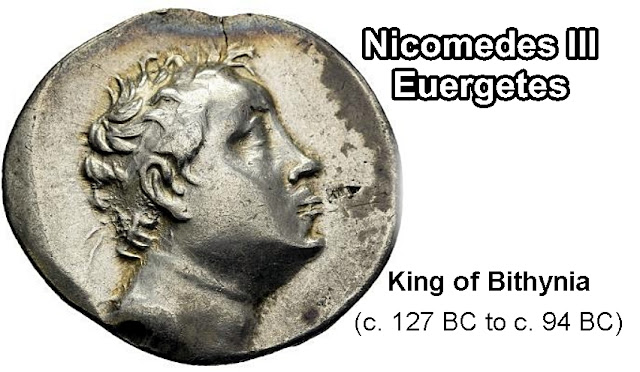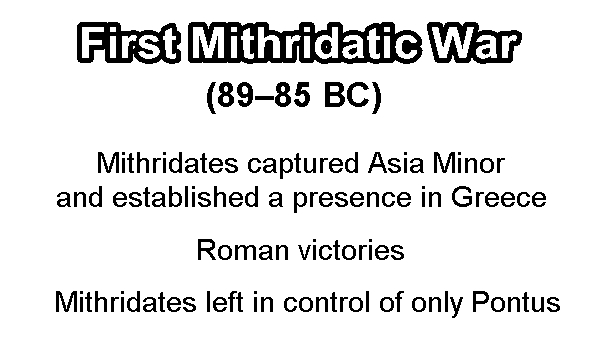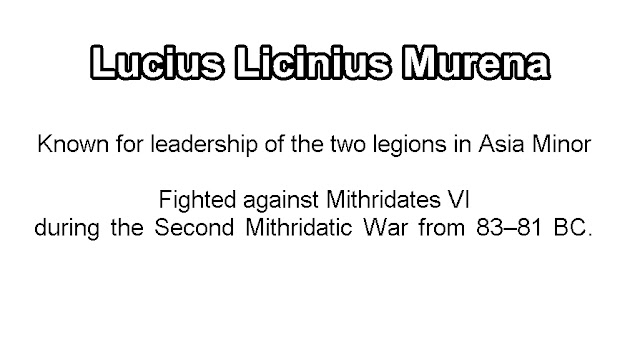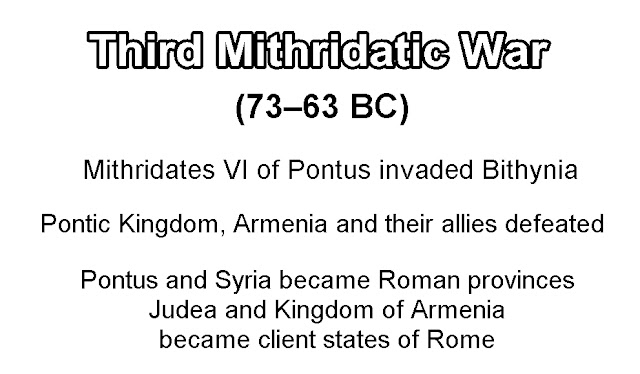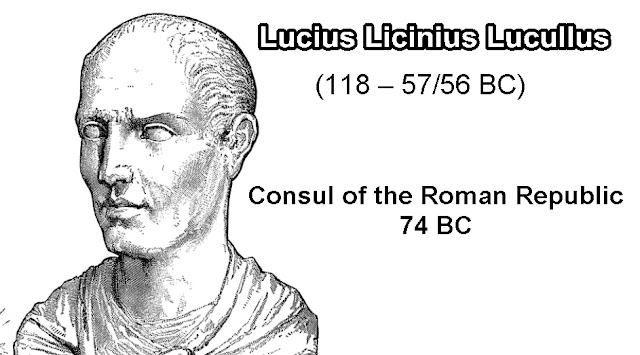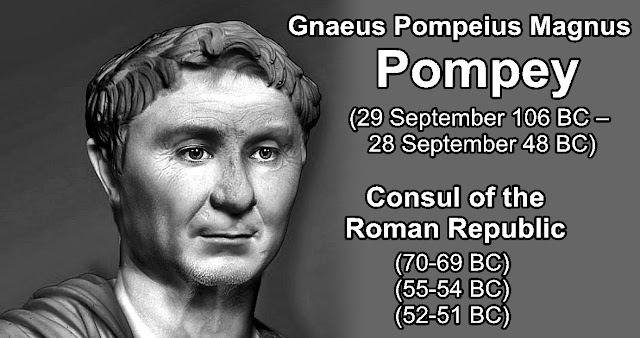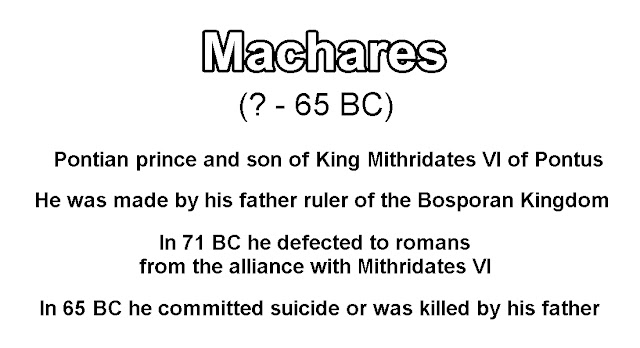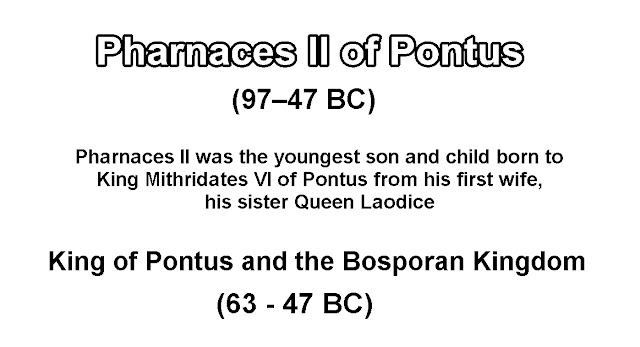Saturday, April 8, 2023
Kingdom of Pontus during the reign of Mithridates VI
Mithridates VI, also known as Mithradates the Great and Eupator Dionysius, was king of Pontus and Armenia Minor in northern Anatolia, now Turkey, from about 120 to 63 BC.
Mithridates is remembered as one of the Roman Republic’s most formidable and successful enemies, who engaged three of the prominent generals from the late Roman Republic in the Mithridatic Wars: Lucius Cornelius Sulla, Lucius Licinius Lucullus and Gnaeus Pompeius Magnus. He is often considered the greatest ruler of the Kingdom of Pontus.
Mithridates was born in the Pontic city of Sinope, and was raised in the Kingdom of Pontus. He was the first son among the children born to Laodice VI and Mithridates V of Pontus. Mithridates V was assassinated in about 120 BC in Sinope, poisoned by unknown
persons at a lavish banquet which he held. He left the kingdom to the joint rule of Mithridates' mother, Laodice VI, Mithridates, and his younger brother, Mithridates Chrestus. Neither Mithridates nor his younger brother were of age, and their mother retained all power as regent for the time being. Laodice VI’s regency over Pontus was from 120 BC to 116 BC or 113 BC, and favored Mithridates Chrestus over Mithridates. During his mother’s regency, he escaped from his mother's plots against him, and went into hiding.
Mithridates emerged from hiding, returning to Pontus between 116 BC and 113 BC and was hailed as king. He removed his mother and brother from the throne, imprisoning both, becoming the sole
ruler of Pontus. Laodice VI and Mithridates Chrestus died in prison, and Mithridates gave both royal funerals. Mithridates first married his younger sister Laodice, aged 16. His goal was to preserve the purity of their bloodline, solidify his claim to the throne, to co-rule over Pontus, and to ensure the succession to his legitimate children.
Mithridates entertained ambitions of making his state the dominant power in the Black Sea and Anatolia. He first subjugated Colchis, a region east of the Black Sea, and prior to 164 BC, an independent kingdom. He then clashed for supremacy on the Pontic steppe with the Scythian King Palacus. The most important centres of Crimea, Tauric Chersonesus and the Bosporan Kingdom readily surrendered their independence in return for Mithridates' promises to protect them against the Scythians, their ancient enemies. After several abortive attempts to invade the Crimea, the Scythians and the allied Rhoxolanoi suffered heavy losses at the hands of the Pontic general Diophantus and accepted Mithridates as their overlord.
The young king then turned his attention to Anatolia, where Roman
power was on the rise. He contrived to partition Paphlagonia and Galatia with King Nicomedes III of Bithynia. It soon became clear to Mithridates that Nicomedes was steering his country into an anti-Pontic alliance with the expanding Roman Republic. When Mithridates fell out with Nicomedes over control of Cappadocia, and defeated him in a series of battles, the latter was constrained to openly enlist the assistance of Rome. The Romans twice interfered in the conflict on behalf of Nicomedes, leaving Mithridates, should he wish to continue the expansion of his kingdom, with little choice other than to engage in a future Roman-Pontic war.
The next ruler of Bithynia, Nicomedes IV of Bithynia, was a figurehead manipulated by the Romans. Mithridates plotted to overthrow him, but his attempts failed and Nicomedes IV, instigated by his Roman advisors, declared war on Pontus. Rome itself was involved in the Social War, a civil war with its Italian allies. Thus, in all of Roman Asia Province there were only two legions present in Macedonia. These legions combined with Nicomedes IV's army to invade Mithridates' kingdom of Pontus in 89 BC. Mithridates, however, won a decisive victory, scattering the Roman-led forces. His victorious forces were welcomed throughout Anatolia. The following year, 88 BC, Mithridates orchestrated a massacre of Roman and Italian settlers remaining in several Anatolian cities, essentially wiping out the Roman presence in the region. This episode is known as the Asiatic Vespers.
The Greek cities, including Athens, defected to the side of Mithridates and welcomed his armies in mainland Greece, while his fleet besieged the Romans at Rhodes. Neighboring King of Armenia Tigranes the Great established an alliance with Mithridates and married one of Mithridates’ daughters, Cleopatra of Pontus. They would support each other in the coming conflict with Rome.
The Romans responded by organising a large invasion force to defeat him and remove him from power. The First Mithridatic War, fought between 88 BC and 84 BC, saw Lucius Cornelius Sulla force Mithridates VI out of Greece proper. After victory in several
battles, Sulla received news of trouble back in Rome posed by his enemy Gaius Marius and hurriedly concluded peace talks with Mithridates. As Sulla returned to Italy Lucius Licinius Murena was left in charge of Roman forces in Anatolia. The lenient peace treaty, which was never ratified by the Senate, allowed Mithridates VI to recoup his forces. Murena attacked Mithridates in 83 BC, provoking the Second Mithridatic War from 83 BC to 81 BC. Mithridates scored a victory over Murena's green forces before peace was again declared by treaty.
When Rome attempted to annex Bithynia, Mithridates VI attacked with an even larger army, leading to the Third Mithridatic War from
73 BC to 63 BC. First Lucullus and then Pompey were sent against Mithridates VI, who surged back to retake his kingdom of Pontus, but was at last defeated by Pompey. After Pompey defeated him in Pontus in 66 BC, Mithridates VI fled with a small army to Colchis in modern Georgia, and then over the Caucasus Mountains to Crimea and made plans to raise yet another army to take on the Romans. His eldest living son, Machares, viceroy of Cimmerian Bosporus, was unwilling to aid his father. Mithridates had Machares killed, and Mithridates took the throne of the Bosporan Kingdom. Mithridates then ordered the conscriptions and preparations for war. In 63 BC, Pharnaces II of Pontus, one of his sons, led a rebellion against his father, joined by Roman exiles in the core of Mithridates' Pontic army. Mithridates withdrew to the citadel in Panticapaeum, where he committed suicide. Pompey buried Mithridates in the rock-cut tombs of his ancestors in Amasya, the old capital of Pontus.
After his death. Most of the western half of Pontus and the Greek cities of the coast, including Sinope, were annexed by Rome directly as part of the Roman province of Bithynia et Pontus. The interior and eastern coast remained an independent client kingdom.
